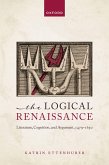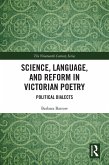The age of miracles was not yet past on the Shakespearean stage. In the first book-length study of the English saint play across the Reformation divide, The Renaissance of the Saints after Reform recovers the surprisingly long theatrical life of the saints from a tenth-century monastery to the Restoration stage. Through a reassessment of archival records of performance and religious change, this book challenges the established history of the saint play as a product of medieval devotional culture that ended with the national conversion to Protestantism during the Reformation. Not only did saints in performance frequently diverge from the narratives of devotional literature during the Middle Ages but also saints made a spectacular reappearance in the theatre of the early modern era. In the rupture between those two eras, the English church separated itself from the Cult of the Saints, and saints disappeared from public view until sainthood transformed from a matter of theology into a matter of theatricality. Early modern saint plays document a post-Reformation culture committed to saints?but not all saints. Certain ancient martyrs and British saints returned to the liturgical calendar in the Elizabethan Book of Common Prayer. This limited inventory performed an initial de-Catholicization of these saints, but it did not recover their lives. Instead, the theatre produced new lives of the saints for the English public. A period of experimentation with saints and devils in the 1590s was followed by unprecedented innovation throughout the Stuart era. This book traces the transformation of sainthood in early modern drama from ambiguous supernatural association and negotiated patronage to a renaissance of miraculous theatricality and sacred place-making. By excavating saints in plays by Shakespeare, Heywood, Dekker, Massinger, and Rowley, as well as plays authored by relatively unknown dramatists, this book reconfigures how we think about the legacy of late medieval religious culture, the impact of Reformation change on literary texts and social practices, and the development of English theatre and drama.
Dieser Download kann aus rechtlichen Gründen nur mit Rechnungsadresse in A, B, BG, CY, CZ, D, DK, EW, E, FIN, F, GR, HR, H, IRL, I, LT, L, LR, M, NL, PL, P, R, S, SLO, SK ausgeliefert werden.









